-

The growing influence of the newly formed Communist Party of India-Maoist (CPI-M), the Naxal outfit, along Uttar Pradesh's (UP) eastern borders, and the rapidity with which they expand their organisation in the State is undoubtedly alarming. Naxals are looking to the State for fresh bases to build a formidable organization. The inaccessible hilly terrain and dense forests of the state provide perfect cover for the Naxalites, who use their maps to move around.
-

Terrorism and nuclear weapons proliferation have, by and large, dominated the security debate in South Asia. However, the overarching influence of these two issues has led to the neglect of the other problems that are equally, if not more, important for security in the region. One such problem is refugees and migration. The presence of more than 110,000 Bhutanese refugees in Nepal and the condition in which they live in different refugee camps is threatening to develop into a major humanitarian crisis in the absence of concrete effort by the parties involved.
-
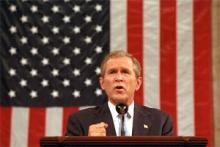
The US President George W. Bush’s re-election poses at least one central question with regard to his foreign policy initiatives in his second term—whether the administration will see an overhaul in foreign policy-making or not. The President’s involvement with India-Pakistan was not a major foreign policy priority for the administration during his first term. The issue, nevertheless, is an important strategic concern for the US. Both Bush and his Democratic rival, John Kerry, sidelined the two South Asian countries in their election debates except over the issue of outsourcing.
-
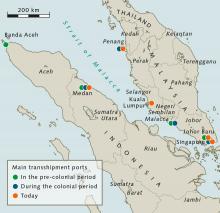
The Straits of Malacca and the Straits of Singapore are not only critical for the economic vitality of Southeast Asian states but are crucial for global trade and commerce. Being congested and confined sea-lanes, the safety of maritime traffic is threatened from at least three directions. These are (a) poor navigation system (b) Pollution from the sea traffic and (c) Maritime security. These are closely related to each other. As regards to navigational safety, the Straits are shallow and have several wrecks that make navigation a very difficult task.
-

The history of the United Nations peacekeepers goes back to 1948 when 36 unarmed military observers went to supervise the Arab-Israeli war. Since then, it has grown enormously for the cause of world peace, tranquillity and the larger benefit of humanity. The UN peacekeepers initiated as a task force working to ease the tension and prepare grounds for negotiated settlements, maintaining their impartial presence. There are 62,289 Military personnel and civilian police serving in 16 current peacekeeping operations as of 30 September 2004.
-
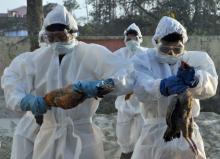
The world is still recuperating from the onslaught of the severe acute respiratory syndrome (SARS) that killed 774 persons and spread to almost every corner of the globe in 2003-04. The World Health Organisation (WHO) warns that we are again closer to experiencing the next pandemic, Bird Flu (Avian Influenza). David Heymann of WHO recently observed that the ‘world is at great risk of a new pandemic of deadly bird flu, but is ill-prepared to handle it’.
-
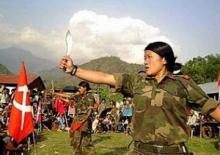
Even as the nine-day-long ceasefire called by Maoist extremists during the ‘Dashain’ festival ended on October 28, civil society groups urged the Maoists to continue the truce until December this year when an international Buddhist convention will be held in Lumbini in southern Nepal. Prime Minister Sher Bahadur Deuba has refused to extend the ceasefire unilaterally. The government started the offensive immediately, but it stopped just before the truce. At least ten extremists were gunned down in separate encounters in the Taplejung and Siraha districts within 48 hours of the truce.
-

Intelligence is the first line of defence in any war; unfortunately for the Americans, this most important aspect of war was the weakest link during the recent Iraq confrontation. Their failure to find Weapons of Mass Destruction (WMDs) in Iraq made them realise the need for reassessment of overall intelligence-gathering procedures. The recent re-evaluation by adopting more stringent standards towards analysing their earlier estimates about Cuba’s bio-weapons programme has made them conclude that Cuba has no active bio-weapons programme.
-

The Ministry of Home Affairs in India is in a Catch-22 situation. In the last six months, at least seven Naxalite-affected states have written to it making an unusual demand: amend the Forest Conservation Act (FCA), 1980 to curb the spread of Naxalites. But the union home ministry mandarins are helpless: the Ministry of Environment and Forests, the nodal authority for the FCA, has refused to entertain any such demands.
-
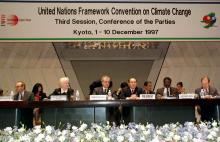
Climate change is not a prognosis for the future, as some irresponsible governments believe. All countries are affected by and contribute to the cause of climate change. Some 150,000 human lives are lost each year as a result of climate change. One heat wave killed 20,000 people in Europe alone in 2003. More often invincible (!), the US is more vulnerable to natural disasters than terrorists attack. The successive floods in Bangladesh present the single biggest threat to the national security of such low-lying countries.
Paxton ported to drupal by DropThemes.in